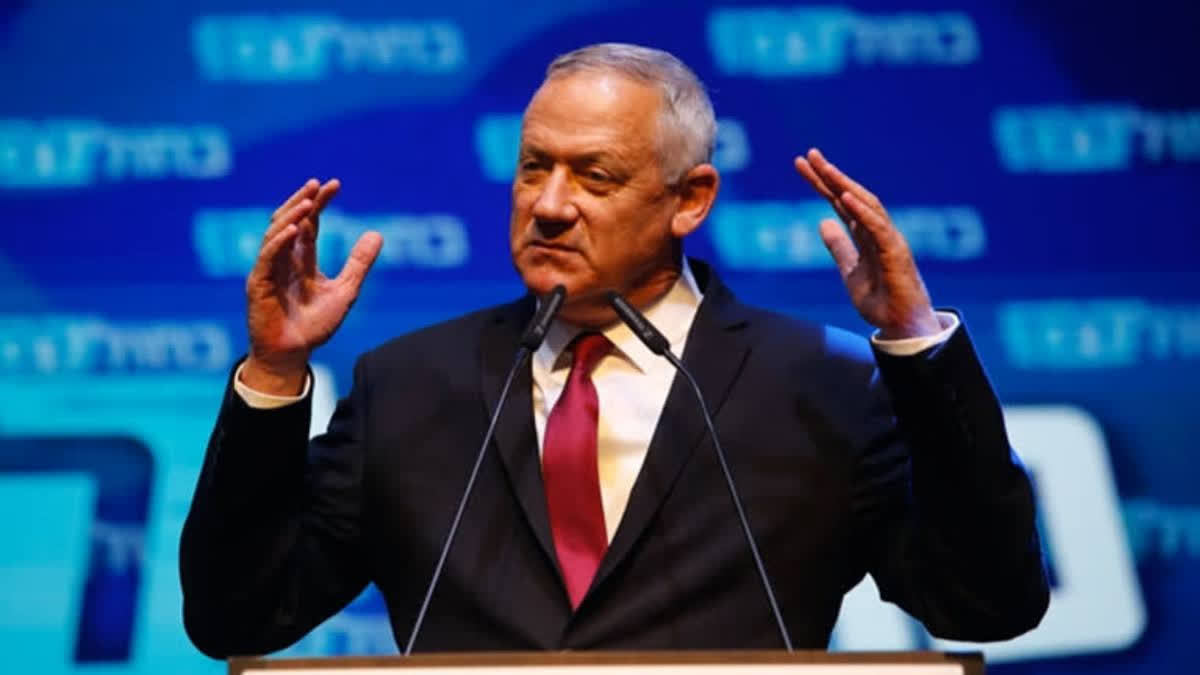New Delhi: With Israeli Prime Minister Benjamin Netanyahu dissolving the war cabinet amidst the war with Hamas in Gaza and officially announcing that he will rely on a kitchen cabinet to run the war, questions arise as to why he was compelled to take this measure.
The Israel war cabinet was formed on October 11, 2023, days after the Hamas attack on the Jewish state that claimed over 1,200 lives. In the war that Israel consequently unleashed on Hamas in the Palestinian enclave of Gaza on the east coast of the Mediterranean Sea, over 37,000 people have lost their lives so far and counting.
Israel has come under immense criticism from the international community for its disproportionate response. The war cabinet was established as a smaller, specialised body within the broader coalition government cabinet. This inner cabinet consisted of Netanyahu, his main political opponent Benny Gantz (a former military general), Defence Minister Yoav Gallant, and three additional members serving as observers: Ministers Aryeh Deri, Gadi Eisenkot (from the government), and Ron Dermer (the Strategic Affairs Minister). The purpose of this smaller group was to focus specifically on security-related matters while operating under the umbrella of the larger cabinet.
“The war cabinet was formed in Israel to rally the cabinet to raise the fight against Hamas into a national cause,” a former Indian diplomat told ETV Bharat on the condition of anonymity. “Today, though Hamas is down on resources since the outbreak of the war in October last year, its political will to fight Israel in different forms remains. However, it needs to patch up with the Palestinian Authority, which it is not doing.”
The Palestinian Authority is internationally recognised as the official representative of the Palestinian people. According to the former diplomat, there have been differences within the Israeli war cabinet about the war in Rafah amidst international calls for a ceasefire.
“The US too has started taking a different view of the Israeli war cabinet,” the former diplomat said. On June 9, Gantz quit the war cabinet citing the lack of a proper plan for Gaza beyond the ongoing war. Gantz’s close ally Eisenkot too followed suit. This left the war cabinet virtually redundant.
Following Gantz’s resignation, National Security Minister Itamar Ben-Gvir and Finance Minister Bezalel Smotrich put pressure on Netanyahu to include them in the inner war cabinet. However, both are from an ultra-right-wing orthodox constituency. Both have been pressurising the Netanyahu administration to launch the Rafah attack in Gaza that is currently underway. Rafah is now providing shelter to around 1.5 million displaced Palestinians.
Now, with Gantz and Eisenkot leaving the war cabinet and Ben-Gvir and Smotrich seeking to be included, Netanyahu had no choice but to disband the war given that the US, Israel’s closest ally would not like to engage with the two far-right leaders. As such, on Sunday, Netanyahu announced the dissolution of the war cabinet and the formation of a kitchen cabinet.
In political terminology, a “kitchen cabinet” refers to an informal group of advisors, confidants, or associates who provide counsel and guidance to a political leader, often outside the official governmental or advisory structures. Unlike formal cabinets composed of officially appointed ministers or secretaries, kitchen cabinets are usually made up of friends, family members, and trusted allies who the leader consults privately. These advisors often wield significant influence despite not holding official positions.
The term “kitchen cabinet” originated in the US during the presidency of Andrew Jackson (1829-1837). Jackson was known for seeking advice from a small group of trusted friends and unofficial advisors, separate from his formal cabinet. This group met in the White House kitchen, giving rise to the term. The informal nature and significant influence of this group led critics to coin the phrase “kitchen cabinet” as a pejorative term, suggesting an improper bypassing of the official advisory structures.
However, decisions taken by a kitchen cabinet do need approval by the formal cabinet. “Kitchen cabinets shape policy decisions informally and these are then sent to the official cabinet for formality’s sake,” the former diplomat said.
Read more: Belated Reconciliation with Israel to Restore Stability in West Asia



